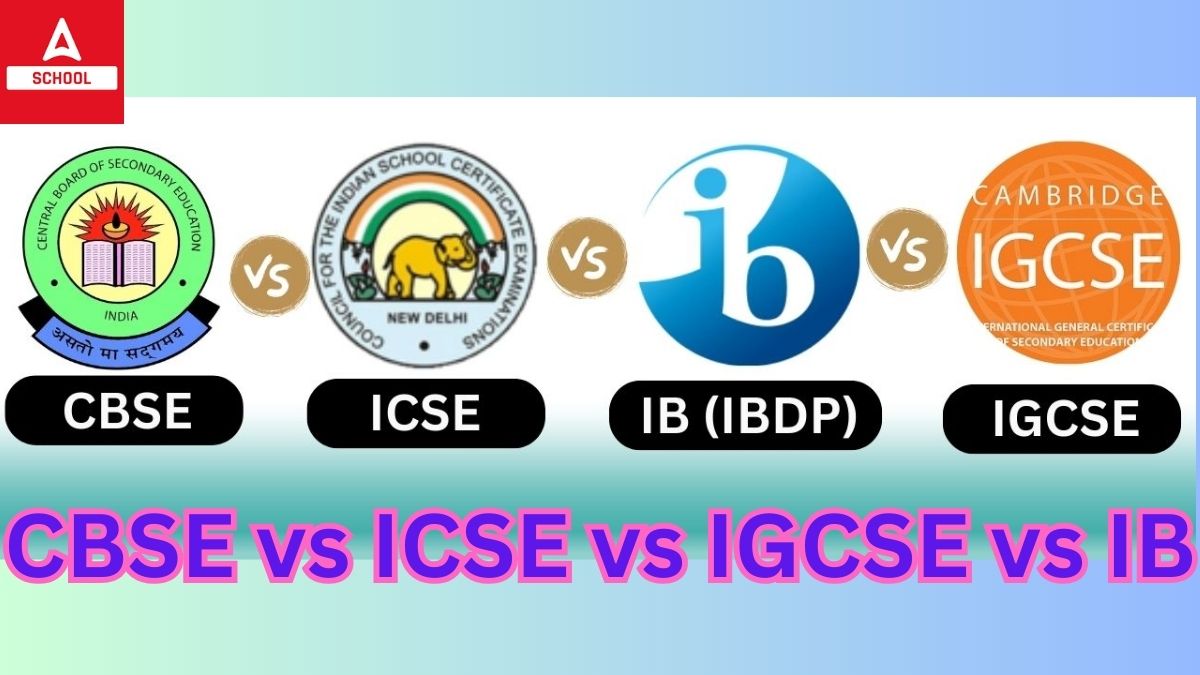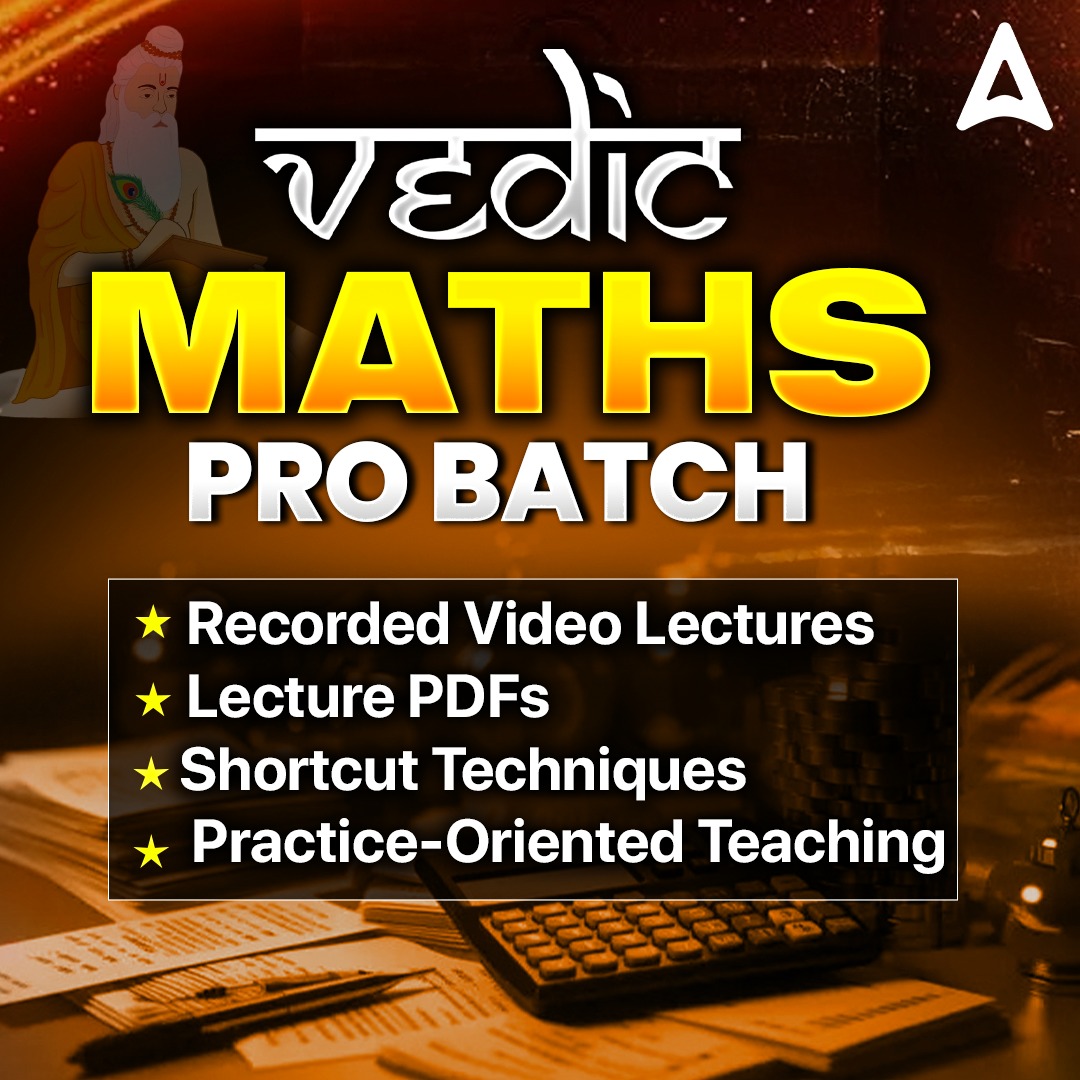India is a diverse country not only in terms of demographics but also in the context of education system. There are numerous education boards at the school level in India. While the schooling system is same for all education boards, they vary to some degrees in the way they impart education and what is their end goal. The most prominent Indian education boards at the school level are CBSE, ICSE, IGCSE or IB. In this post, we will learn about which board is best among CBSE vs ICSE vs IGCSE vs IB.
CBSE vs ICSE vs IGCSE vs IB
Choosing the appropriate educational board for your child is an important task that requires thoughtful deliberation. In India, parents usually consider the four main choices: the International Baccalaureate (IB), CBSE (Central Board of Secondary Education), ICSE (Indian Certificate of Secondary Education) and IGCSE (International General Certificate of Secondary Education). Among CBSE vs ICSE vs IGCSE vs IB, the best board depends on your end goal.
CBSE vs ICSE vs IGCSE vs IB: Which is Better?
When choosing the right education board for your child, there is no universal answer. Every board, whether it’s CBSE, ICSE, IGCSE, or IB, offers distinct advantages and is suited to varying educational and professional goals. Ultimately, the decision hinges on your child’s interests, future aspirations, and the educational atmosphere you want to create.
Every board offers different educational beliefs, instructional methods, and strategies to cater to a wide range of student requirements and goals. We are providing the detailed information for each of the CBSE vs ICSE vs IGCSE vs IB board so that you can make informed decision about the future of your child.
CBSE (Central Board of Secondary Education)
Established in 1929, the Central Board of Secondary Education (CBSE) functions under the authority of the Government of India and has emerged as one of the most reputable educational boards in the country. CBSE’s broad network, comprising more than 24,000 schools in India and around 240 schools abroad, makes it a convenient option for numerous families.
The CBSE syllabus focuses on key subjects like Mathematics, Science and Social Studies, essential for students aiming for careers in engineering or medical fields. Moreover, the board’s emphasis on standardized testing prepares students to perform well in national competitive exams like JEE and NEET. The CBSE follows a 2-term exam pattern, with formative assessments (FA) at the end of each term and a summative assessment (SA) at the end of the academic year.
Advantages of CBSE Board
CBSE is known worldwide for its recognition, making it easier to apply to international colleges. Its focus on fundamental disciplines such as science and math guarantees a strong base, making it perfect for a variety of overseas undergraduate programs. Additionally, the emphasis on competitive exams such as JEE and NEET in the curriculum, along with affordability, makes CBSE a viable option that equips students for higher education opportunities globally at a lower cost.
Disadvantages of CBSE Board
While acknowledged, the CBSE Board has its constraints. Focusing primarily on Indian perspectives may limit awareness of global issues due to the absence of a variety of viewpoints. Traditional teaching methods may not be in line with interactive approaches that are preferred globally. Furthermore, students who aspire to succeed in the international education sector may face obstacles due to the curriculum’s lack of focus on soft skills and limited extracurricular options.
ICSE Board
Founded in 1958, the Indian Certificate of Secondary Education (ICSE), a part of the Council of the Indian School Certificate Examinations (CISCE), is well-known for its thorough and demanding syllabus, encouraging a well-rounded approach to learning. Having around 2,500 affiliated schools located in urban areas in India, ICSE is especially appealing to families looking for an education that encourages creativity and critical thinking.
The ICSE syllabus covers various subjects, urging students to fully immerse themselves in their academics. It includes project work, hands-on evaluations, and a focus on languages, making it a great fit for students with diverse interests, particularly in the fields of arts and humanities. The board places a strong focus on project-based learning, with 20% of the grades coming from internal assessments.
This method motivates students to use theoretical ideas in real-world scenarios, promoting a more profound comprehension of the topic. The syllabus covers a wide variety of subjects such as Hindi, English, Kannada, Tamil, and Telugu languages, along with agriculture, home science, and cooking creative subjects.
CISCE is prepared to continually introduce fresh syllabi, curriculum frameworks, and assessment systems, adding to the complexity and interest of the education system. The Council is structured into three primary divisions, each designed for particular educational levels and objectives:
- ICSE (Class 10th): The purpose of the Indian Certificate of Secondary Education exam is to evaluate students’ General Education following 10 years of schooling (classes I-X). In accordance with the guidelines of the New Education Policy 1986, the exam is carried out in English. ICSE students take exams in six to ten subjects and participate in Socially Useful Productive Work (SUPW).
- ISC (Class 12th): The Indian School Certificate exam is taken after finishing a 2-year program following the ICSE exam or its equal. Established by the New Education Policy 1986, the exam is carried out in the English language. ISC students must enroll in English as a mandatory course, in addition to 3 to 5 elective courses, and are obligated to pass Socially Useful Productive Work and Community Service (SUPW).
- CVE (Year 12): The Vocational Education exam is designed specifically to ready students for particular trades. Established based on MHRD guidance, the assessment, administered in English, is open to students who have completed a two-year program post 10th ICSE or its equivalent, as per JCVE guidelines. This department is dedicated to helping students develop their vocational skills for their future careers.
Advantages of ICSE Board
The balanced curriculum of ICSE readies students for a variety of worldwide university programs. The emphasis on strong English skills and critical thinking readies them for success internationally. ICSE certifications are globally acknowledged, making it easier for Indian students to get into foreign universities and gain a competitive advantage. This comprehensive method prioritizing analytical abilities and fluency in languages is advantageous for exploring global educational environments.
Disadvantages of ICSE Board
ICSE’s advantages are counterbalanced by its constraints. It does not place emphasis on preparing students for standardized tests such as the SAT and ACT, so students have to find extra help. Although ICSE offers a well-rounded curriculum, it may lack the opportunity for significant exposure to worldwide viewpoints, unlike IGCSE and IB. The demanding workload may present a challenge for students balancing studying abroad preparations, which could hinder participation in extracurricular activities important for a comprehensive university application.
IGCSE Board
The University of Cambridge provides the IGCSE (International General Certificate of Secondary Education) program, an international education system with a curriculum based on English that highlights the importance of practical knowledge and its application. Offering the opportunity to learn various foreign languages and gain a global viewpoint, it is an appealing choice for families looking to relocate or study internationally.
The focus on critical thinking skills and adaptable curriculum equips students for success in the global education sector. It also promotes self-directed learning and flexibility, key qualities for success in varied academic settings. The program’s acknowledgment from universities around the globe boosts its attractiveness even more. IGCSE assessments combine both formative assessments (such as classwork and projects) and summative evaluations (like final exams).
Schools’ internal assessments act as a supplement to external exams conducted by the examination board (e.g., Cambridge). External exam scores, along with internally assessed coursework or practicals, determine final grades. This comprehensive method assesses students’ grasp of knowledge, comprehension, application, and practical abilities, providing a thorough evaluation for IGCSE students.
Advantages of IGCSE Board
IGCSE is widely recognized globally, making it easier for Indian students to get admitted into universities worldwide. Its adaptable program is designed to cater to a range of interests and future career choices, providing a solid base for continued education overseas. By focusing on important skills such as problem-solving and communication, the IGCSE program readies students for the international workforce. Furthermore, its emphasis on global consciousness promotes cultural flexibility, perfect for excelling in varied international academic settings.
Disadvantages of IGCSE Board
IGCSE schools usually have more expensive fees, making them less accessible compared to CBSE and ICSE-linked schools. Although providing a worldwide viewpoint, IGCSE may not have the necessary level of detail in the Indian setting, which is important for students who will go back to India. Students may need extra preparation for standardized tests such as the SAT and ACT, which is not the main emphasis of IGCSE. Additionally, some students in India may face restricted access to IGCSE schools due to their limited availability.
IB (International Baccalaureate)
The IB program, based in Switzerland, is well-known for its thorough and challenging curriculum. It motivates students to try new things and apply what they have learned in practice. IB’s dedication to nurturing analytical, logical thinking, and linguistic abilities, along with its priority on extracurricular involvements and community service, renders it an attractive option for students desiring a comprehensive worldwide education.
The IB Board provides four distinct programs:
- Primary Years Programme (PYP) for students aged 3 to 12 years
- Middle Years Programme (MYP) for students aged 11 to 16 years
- Diploma Programme (DP) for students between 16 to 19 years
- Career-related Programme (CP) for students between 16 to 19 years
Advantages of IB
IB provides worldwide acknowledgement, assisting Indian students in obtaining placements at esteemed international colleges. The comprehensive educational method enhances personal, social, and academic abilities that are beneficial for thriving in diverse international environments. Focusing on critical thinking and problem-solving skills, IB readies students for achievement in global education and the international workforce.
Disadvantages of IB
IB schools frequently charge higher fees, which restricts accessibility for some individuals. Students may find it difficult to balance their workload, especially when getting ready to go abroad for their studies. Although IB provides a worldwide perspective, it may not delve deeply into the Indian context, an important factor for students intending to come back. Some Indian students are restricted from accessing IB schools due to their limited availability.
CBSE vs ICSE vs IGCSE vs IB: Detailed Comparison
There is a lot of discussion about which of India’s four main school boards – IB, IGCSE, CBSE, and ICSE – is the most challenging. Nonetheless, it’s a fact that every board presents its own distinct characteristics and obstacles. Ultimately, the level of difficulty is determined by each student’s personal preferences, learning methods, and academic objectives. In the following sections, we have provided some important comparisons to help you choose the right education board for the future of your children.
CBSE vs ICSE vs IGCSE vs IB: Subjects Offered
One of the major comparison in CBSE vs ICSE vs IGCSE vs IB is the subjects that is offered by each board.
CBSE
- Class 10: Subjects generally include Mathematics, Science, Social Science, English, and additional languages.
- Class 12: Subjects in 12th grade include Physics, Chemistry, Biology/Mathematics, and English, and optional subjects include Computer Science, Economics, and Business Studies.
ICSE
- Class 10: The ICSE class 10 subjects include English, Mathematics, Science (Physics, Chemistry, Biology), History, Geography, and additional languages.
- Class 12: The subjects in class 12 vary widely, including English, Physics, Chemistry, Biology/Mathematics, Economics, Business Studies, etc.
IB
- The International Baccalaureate provides a range of programs, such as the IB Primary Years Program (PYP), IB Middle Years Program (MYP), and IB Diploma Program (DP).
- The IB Diploma Program is generally meant for students in the 11th and 12th grades. The curriculum consists of courses such as Biology, Computer Science, and Mathematics at either the Higher Level or Standard Level (HL/SL). HL signifies a minimum of 240 hours of studying, while SL signifies a minimum of 150 hours of studying.
IGCSE
- Although English, Mathematics, and Science are critical subjects, students are also able to choose additional courses based on their personal interests in the IGCSE curriculum.
- IGCSE promotes independence and lifelong learning by emphasizing self-directed learning, critical thinking, and problem-solving skills.
CBSE vs ICSE vs IGCSE vs IB: Curriculum
Understanding the curriculum is crucial in knowing what is provided and what your child will encounter. Every board follows its own method in creating educational programs. ICSE and CBSE focus on India-specific education, while IB and IGCSE have a more global curriculum. In order to enhance your understanding, here is a comparison of the curriculum across all boards.
| Parameters | IB | ICSE | CBSE | IGCSE |
| Syllabus | International Curriculum | India-Specific Curriculum | India-Specific Curriculum | International Curriculum |
| Structure | PYP, MYP, DP | Primary, Secondary, Senior Secondary | Primary, Secondary, Senior Secondary | Primary, Secondary, Senior Secondary |
| Focus | Holistic Education, Global Perspective | Academic Oriented, National Curriculum | A balanced approach to languages | An inquiry-based approach that helps students to become innovative learners |
| Flexibility | Encourages interdisciplinary learning | Prescribed Syllabus | Strict adherence to syllabus | Flexible Syllabus |
CBSE vs ICSE vs IGCSE vs IB: Grading System
CBSE: Alphabet-based grading system.
ICSE: Scores-based evaluation.
IGCSE: Grades and percentages.
IB: Points system with detailed assessment.
CBSE vs ICSE vs IGCSE vs IB: School Network
CBSE academic is definitely the most widely used board in India, with over 27,000 schools in 28 countries being affiliated with it. There are more than 2750 CISCE schools in India for the CISCE board (ICSE/ISC).
In contrast, there are over 230 schools in India that offer IB board education, with around 158 of them offering the IBDP. In India, there are over 650 schools that adhere to the curriculum of the Cambridge board, which is more prevalent than the IB.
CBSE vs ICSE vs IGCSE vs IB: Transferability
When it comes to India, the CBSE students find it most easy to transfer from one school to another due to the large network of schools available for this education board.
CBSE: Highly flexible for transferring schools within India.
ICSE: More restrictive but beneficial for foreign university applications.
IGCSE: Widely recognized globally.
IB: Globally accepted with strong international recognition.
CBSE vs ICSE vs IGCSE vs IB: Education Expense
When considering how to fund education, there are various choices available to accommodate various financial situations. CBSE and ICSE provide a vast range of fees, starting from ₹10,000 and going up to 5 lakhs per year, to accommodate different economic conditions. However, if you’re considering enrolling in the International Baccalaureate (IB) program, expect to spend a significant amount, as fees range from 2.5 to 8 lakhs per year.
The cost of IGCSE for Grades 6 through 10 varies between ₹37,000 and ₹50,000 per quarter, while it is ₹65,000 for Grades 11 and 12. Keep in mind, these figures may vary based on the institution and its offerings, so it is advisable to research thoroughly before making a decision.
CBSE vs ICSE vs IGCSE vs IB: Which One to Choose
Among the CBSE vs ICSE vs IGCSE vs IB, the best education for your or your children future will depend on their career goals. Check the following tips while choosing one of the above boards.
CBSE
Students who wish to enter the fields of Engineering or medicine should choose this board, as the syllabi and format of Indian entrance exams in these areas are in sync with the CBSE curriculum. CBSE schools are more affordable than the other three boards, making them a great choice for those seeking a high-quality education without spending too much money.
ICSE
This board can combine the Indian curriculum and examination systems effectively while also promoting a deeper comprehension of subject matter. CICSE also supports the enhancement of strong language abilities, making it a preferred choice for students seeking comprehensive growth and deep understanding of subjects compared to CBSE.
IGCSE
Graduates of this program gain strong global acknowledgment, giving them a competitive edge when seeking admission to international universities. This is also widely acknowledged among Indian universities and matches the local dates for entrance exams and admissions. Therefore, those interested in pursuing a globally recognized education can choose this option.
IB
This board helps improve analytical, logical reasoning, and language abilities. The emphasis on extracurricular activities and social action through the CAS requirement also helps in profile building, providing a competitive advantage. If one is looking for worldwide skill advancement, adaptability, and a creative approach to learning, this board is also an option.












 Children's Day Speech in English, Check ...
Children's Day Speech in English, Check ...
 Diwali Rangoli Easy Design 2025: Simple ...
Diwali Rangoli Easy Design 2025: Simple ...
 Happy Diwali 2025 Wishes in English, Ima...
Happy Diwali 2025 Wishes in English, Ima...














